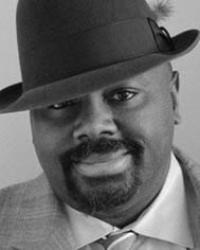
Gus Lindsay
Class of 2004
Owner, The Law Office of G. Benjamin Lindsey III
What did you do before law school, and what led you to pursue a law degree?
Prior to law school, I was a manager at a large corporation. My team was responsible for investigating complaints of harassment and discrimination made via the company’s internal complaint process in addition to complaints filed with agencies such as the EEOC or Washington State Human Rights commission.
I was originally interested in attending law school when pursuing my undergraduate degree in Industrial Engineering back in Georgia. (The DA in my college town had an Engineering undergraduate degree and spoke to my Business Law class.) However, back then, I choose to embark on my work career and forgot about my interest in the law. Years later, because of my role supporting EEO investigations, I began working on matters with my employer’s outside legal counsel. One of these attorneys (Phil Thompson-Perkins Coie) encouraged me to pursue a law degree.
How did the Part-Time Program benefit you? What law school experiences helped you in establishing your career?
The Part-Time Program allowed me to remain employed while pursuing my degree. Additionally, my employer paid for law school (and a broad range of other degrees) for employees that worked full-time. Therefore, the part-time program allowed me to attend school without the need for student loans.
I had number of solid instructors at Seattle University (including Professor Berger, Professor Wing, and Professor Oltman to name a few). However the experiences that seemed to help me most in establishing my legal career were my trial advocacy courses (taught by a practicing attorney) and Legal Writing I and II (taught by Jessica Eaves.) Additionally, the demographics of the evening student body, especially the broad range of real world experience that my peer classmates brought to the table, enhanced the experience because many of my fellow students had insight on other industries.
Was there a defining moment or experience that confirmed your decision to become a lawyer or to pursue a particular field of legal work? If so, please describe.
I would have to say there have been many defining moments! After law school, I worked for Davis Wright Tremaine in Bellevue. I was fortunate, early in my career to work with attorneys, specifically Rhys Farren and Henry Farber, who allowed me to have a broad range of responsibilities based on my background. Additionally, I was able to serve as a second-chair attorney, pro bono, representing a “Lost Boy of the Sudan” accused of murder. Also, Merryn DeBenedetti (whom I think teaches at SU now) and I successfully obtained asylum in the United States for a victim of domestic violence. Each of the above validated my decision to become a lawyer.
I left DWT and took a senior management position in HR. Although I enjoyed managing people, I realized that I missed working as a lawyer. More importantly, I realized that in order to be the type of lawyer that I envisioned while attending law school, I needed to open my own firm. Therefore, I opened GBL3 Law. Opening my own firm allows me greater control over my destiny and the ability to do the type of legal work that I enjoy.
What advice would you give to prospective or current students?
To prospective students: be sure that you (and your loved ones) are fully committed to the law school experience. Law school is a demanding but rewarding endeavor – make sure you understand the level of commitment required before jumping in the pool! Law school will require a large time commitment and place additional pressures on your family and loved ones – it will change you!
To current students: be flexible. Your interests may change once actually working in the profession. As a senior manager, I had lawyers that reported to me, each had his/her own career path that often included a number of twist and turns. I believe this will continue to occur as the legal profession continues to evolve and adjust. Also, though my initial focus was on employment/labor law, I’ve become more enamored with general litigation, especially construction law since leaving law school.
